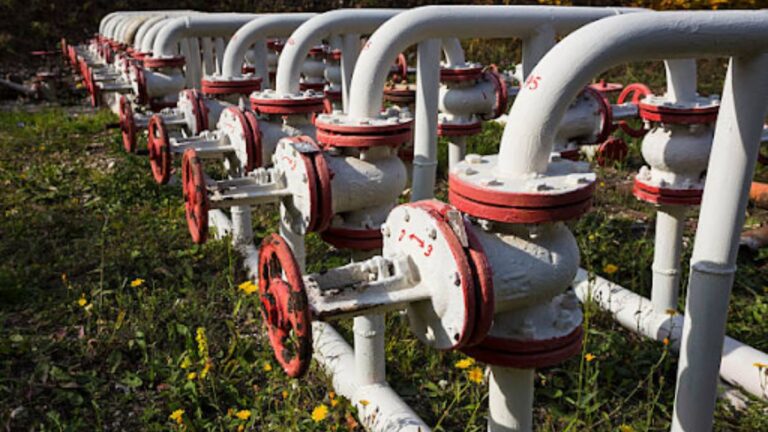It is therefore crucial in today’s challenging industrial practices to maintain the best of operational efficiency as well as precision. Válvulas de control are instrumental in most advanced automated processes, and are central to fluid control strategies of an extensive range of industries. Due to the features of these control valves coupled with powerful actuators such as hydraulic actuators, it can be substantiated that these valves offer high standards in precision and reliability thus maintaining systems at their optimal efficiency without often breakdowns.
Válvulas de Control
Válvulas de control are unique control elements employed to regulate the movement of fluids including liquids and gasses in a given industrial system. These valves work to modulate the flow, pressure and or rate according to the signals received from a controller and as such are central to process control systems. The advantages are notably that the performance of the reactors allows very close control over variables of fluids which is very essential in such areas as petroleum, water and chemical industries.
There are different types of valves available and each type is designed with a certain size and for a certain pressure range for a particular use meant to provide the most effective valve for each application. Depending on the type of fluid to be controlled, rate of flow, pressures and physical environment, the type of valve to be used, that is, globe, ball, butterfly or a gate may be chosen. New materials and coatings are typically applied to effectively increase its corrosion resistance to various fluids and effectively increase the performance of the system, besides improving the useful life of equipment.
Importance of Precise Flow Regulation
The control of the flow of the fluids when delivering services to the industries is critical so as to enhance the productivity of the services in addition to the safety standards of the industries aimed at delivering quality products. In industries for example in pharmaceutical and food industries where proportionality and standard flow rate is essential, válvulas de control are vital. These valves help in mixing of ingredients in the best way possible, so that chemistry of the products and the manufacturing processes is not compromised.
The level of accuracy allowed by these valves assist in avoiding wastage while keeping overflows or shortages to the minimum, which is in line with the set laws. Not only does this save on the amount of material used in operation, but it also lowers the effects that the operation has on the environment. They also minimize equipment stress and degradation which are mostly associated with uncontrolled flow pressure that may cause fluctuation in system pressure.
Role of Actuadores Hidráulicos
The combination of válvulas de control with actuador hidráulico improves the working capacity of the validation valves as such valves require the adequate force to operate under high pressure. Hydraulic actuators have superior power density and are accurate to operate; these characteristics make hydraulic actuators suitable for operations that are based on high-pressure fluids and are very sensitive in operations. Some of them use hydraulic fluid power to move the valve mechanism and this gives them a level of control accuracy that cannot be rivaled by manual, or even pneumatic systems.
Hydraulic actuators when integrated with control valves prove advantageous in cases where fast response and high-frequency control is desirable. The actuators are capable of effectively controlling the valves through actuation in order to match the altering conditions so as to ensure stability and efficiency of the system. This setup is also advantageous in areas which are remote or even dangerous such that direct human control is unsafe and/or possible.
Improving On System Performance
Avanзad válvulas de control additionally can contain smart technology which permits ım control beyond the simple interface; such válvulas can modify or set independently using actual data. This ability to regulate and make precise moves in relation to changes that may occur in the system results in efficiency and operation. Proper integration of sensors and feedback control circuits ensures that the system checks the performance of the valves and makes corrections to the flow rates and pressures as and when required.
These smart valves can be very useful in reducing the level of human interference and therefore decrease the possibility of errors to make the operation safer. Moreover, the data that are gathered by these smart systems can be used to anticipate the time for maintenance, to have a check on the potential problem that can turn into a system failure and to check on energy efficiency, all these also decrease the cost of operation.
Addressing Challenges
There are several difficulties which reach the use of válvulas de control, for example with the components which are already implemented on systems, or else the complexity of the control systems which is needed to run the válvulas. The above challenges call for correct selection and installation, as well as proper maintenance of the valves depending on the specified system requirements to guarantee their efficiency.
It is also important to revise valve technology and valve system operation for the personnel on a regular basis to get the most out of the new and highly efficient systems. Knowledge of proper use, monitoring and management of válvulas de control and actuador hidráulico will result in improved system efficiency, less breakdowns, and maximized cash receipts for any company.
Finally, it should be pointed out that control valves are instrumental in ensuring the effective functionality of the current complex industrial processes. The fact that they allow for precise control and interface with great actuation solutions such as actuador hidráulico makes it possible for industries to meet the demand of today’s difficult operating conditions. The effective use of these advanced control solutions effectively brings about more efficient, and cost-saving operations while increasing the dependability and security of their processes.
